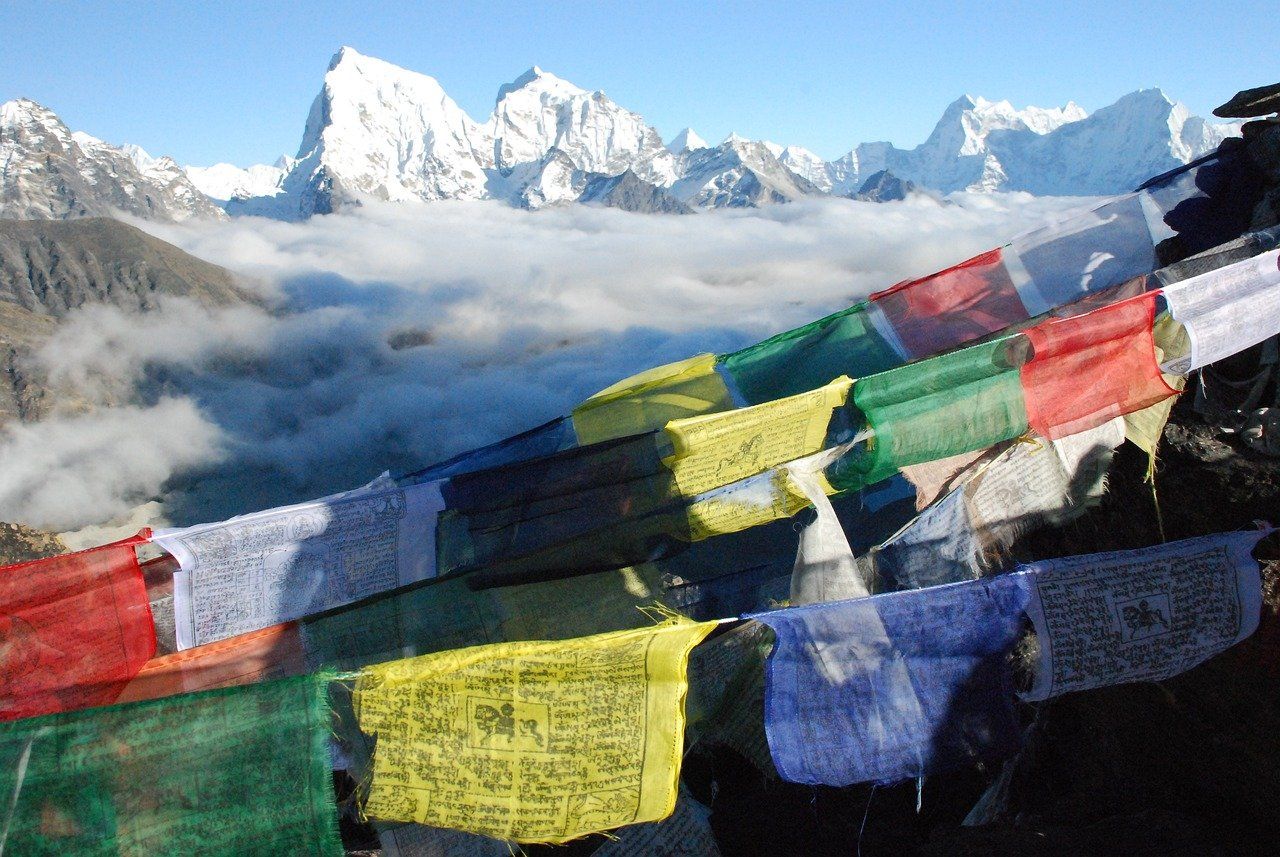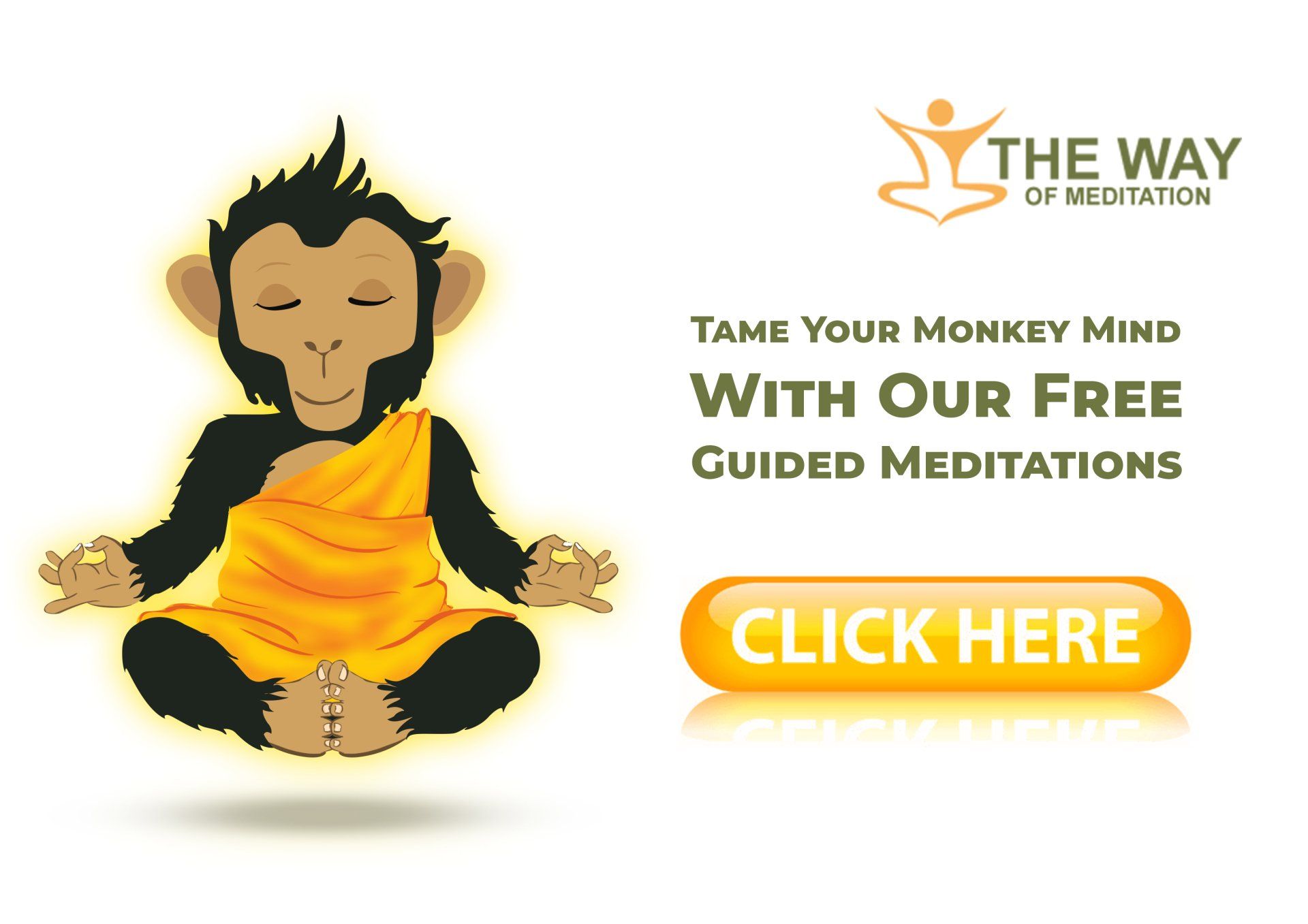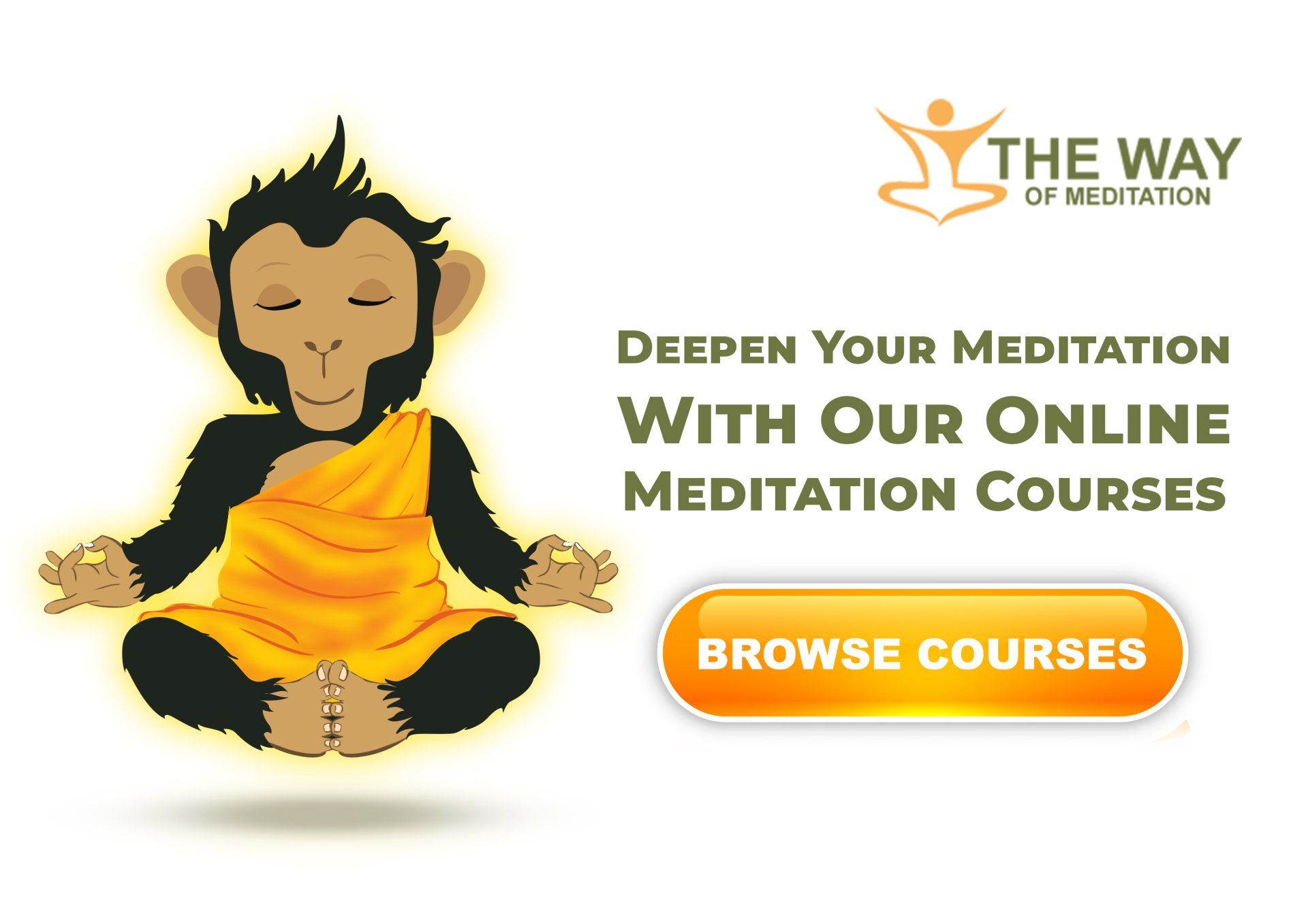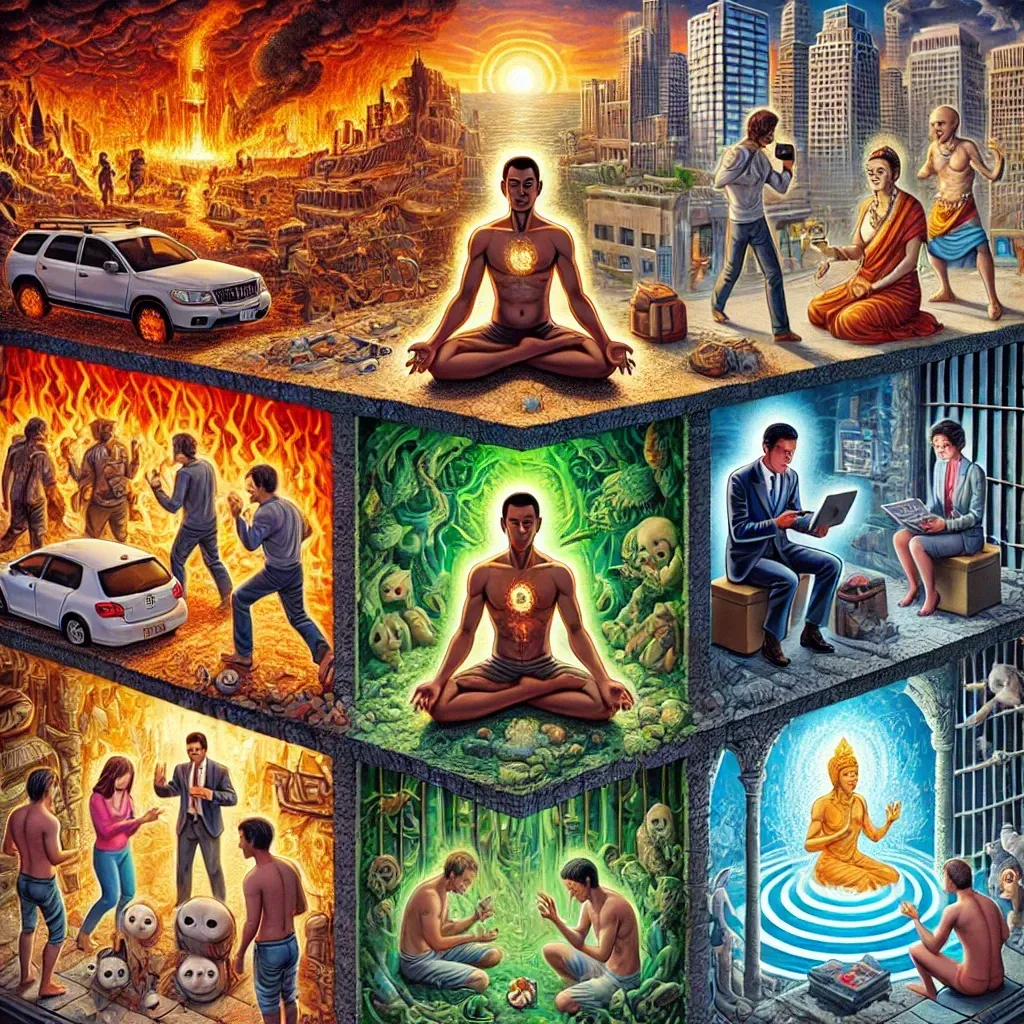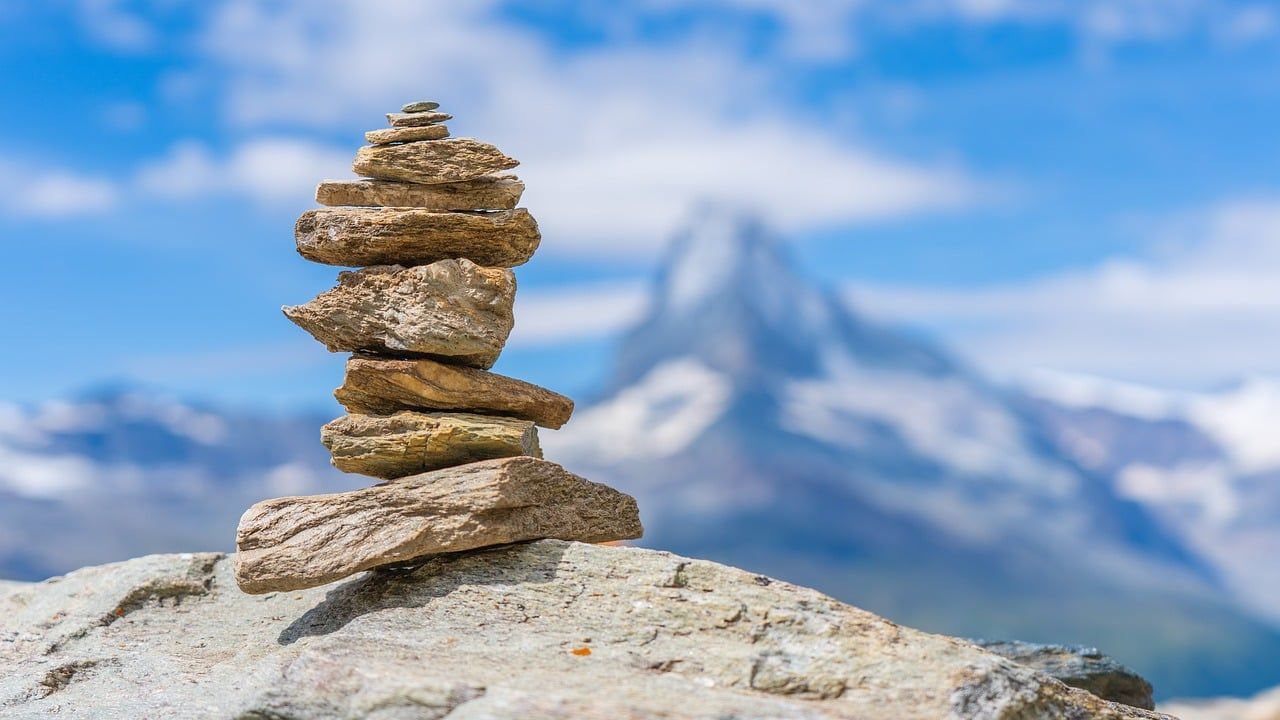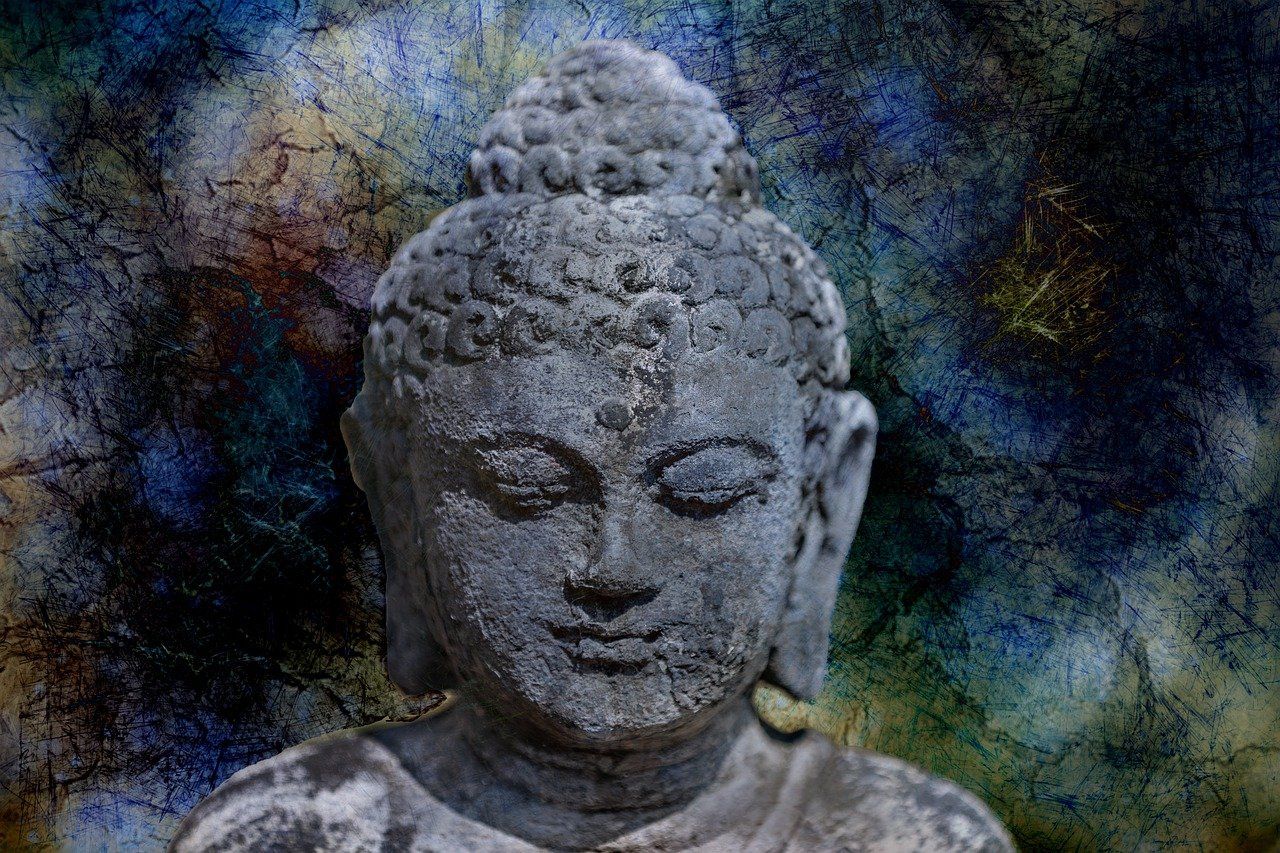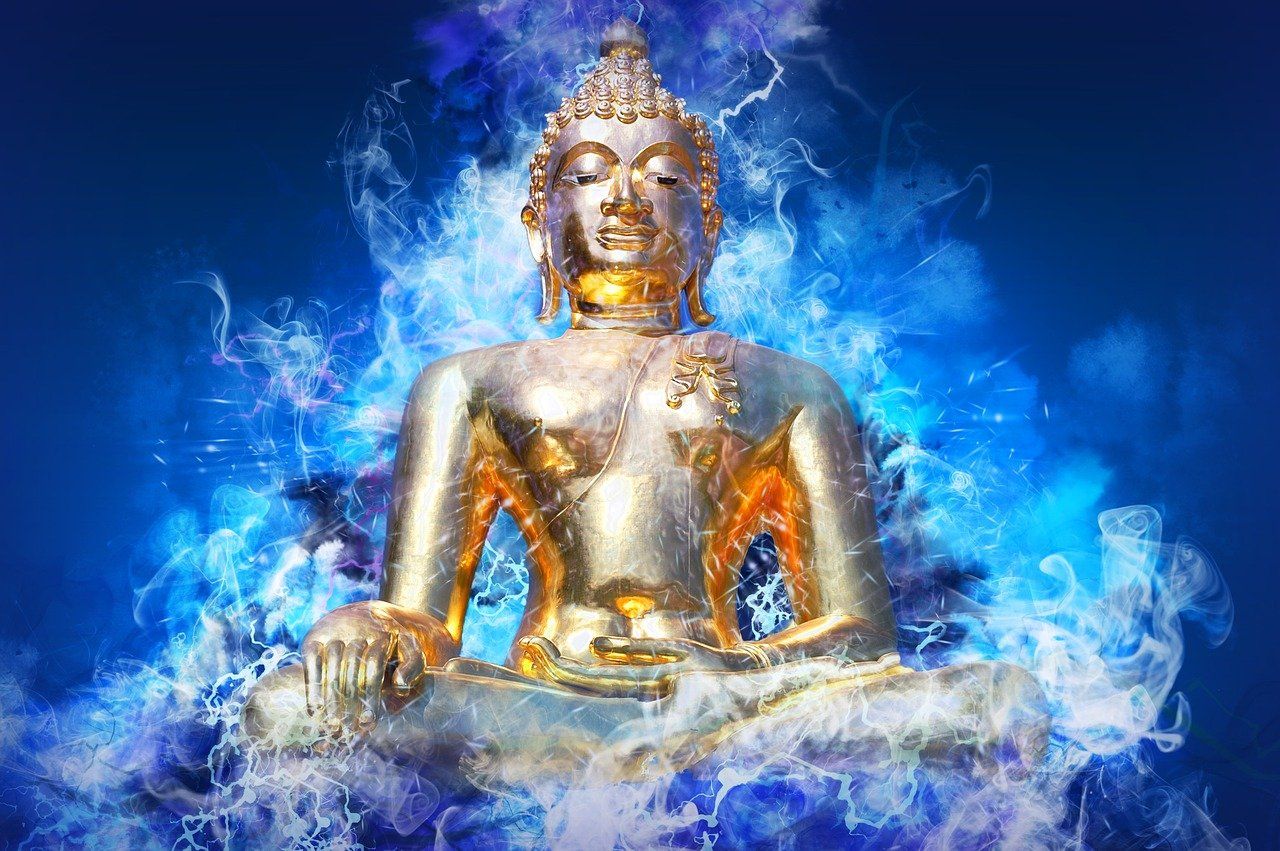The Way of Meditation Blog
Bringing Ancient Wisdom Into The Modern World
8 Keys To Make Travelling A Deeply Spiritual Experience
May 3, 2016
How a journey can be an opportunity for Spiritual Growth
Travel can be overwhelming. Around every street corner, through every door dwells something that might inspire you, enlighten you, or change you. Constantly confronting the unexpected is perhaps one of the most electrifying and spiritual aspects of world travel. But like everything, there are drawbacks.
More and more people are travelling around the world now, some are doing it for fun. Whilst others are doing it for work. For example, some people do things like this Cultural Care Au Pair. These sort of things are great for people. However, travel is important because it removes us from our routines and comforts, hurling us into a world and experience that often feels utterly out of our control. This is a good thing. Yet any traveller will tell you that at some point during your journey, there will come a time when the going gets rough. Sometimes, despite the amazing place you may find yourself, you simply can’t motivate or find the energy to do anything. Sometimes, all you desire is to be still, to stay in one place with some semblance of familiarity, and ignore the strange, whirling world just outside your door…
Having a few simple practices, rituals, and routines while travelling can make all the difference when trying to navigate the inevitable surprises and mysteries that travel puts in front of us.
Perhaps even more importantly, these practice will help you sink more deeply into where you are. You might smell the air differently, or see those around you in a new light. You might discover a profound sense of peace, joy, or appreciation. You might indeed transform. If anything, by finding stillness on the road, insights and lessons will come. In one way or another, you will grow and learn, and that’s really what travel is all about.
You won’t hear about this in any Lonely Planet book or TripAdvisor. These secrets have been passed on to me from some of the most devoted and well-travelled nomads I’ve met from around the world. I apply them in my daily life on the road, and the increasingly rare instances when I’m “at home.”
More and more people are travelling around the world now, some are doing it for fun. Whilst others are doing it for work. For example, some people do things like this Cultural Care Au Pair. These sort of things are great for people. However, travel is important because it removes us from our routines and comforts, hurling us into a world and experience that often feels utterly out of our control. This is a good thing. Yet any traveller will tell you that at some point during your journey, there will come a time when the going gets rough. Sometimes, despite the amazing place you may find yourself, you simply can’t motivate or find the energy to do anything. Sometimes, all you desire is to be still, to stay in one place with some semblance of familiarity, and ignore the strange, whirling world just outside your door…
Having a few simple practices, rituals, and routines while travelling can make all the difference when trying to navigate the inevitable surprises and mysteries that travel puts in front of us.
Perhaps even more importantly, these practice will help you sink more deeply into where you are. You might smell the air differently, or see those around you in a new light. You might discover a profound sense of peace, joy, or appreciation. You might indeed transform. If anything, by finding stillness on the road, insights and lessons will come. In one way or another, you will grow and learn, and that’s really what travel is all about.
You won’t hear about this in any Lonely Planet book or TripAdvisor. These secrets have been passed on to me from some of the most devoted and well-travelled nomads I’ve met from around the world. I apply them in my daily life on the road, and the increasingly rare instances when I’m “at home.”
8 Keys To Make Travelling A Deeply Spiritual Experience
Everything begins with intention. Like a seed sown into soil, the intentions of your trip will grow and blossom to become something you never could have imagined. Whether you want to relax on a beach In Thailand, learn the ancient art of Japanese archery, or visit Machu Picchu, any intention is valid.
When times get tough, your intention can be something to fall back on, and help you clarify why you are traveling in the first place. Without purpose, without intention, travel can become a hollow pass time, a constant party, or just another thing to consume.
I talk about intention constantly with my students on Gap Year semesters. My first transformational travel coaching client told me that when she found herself floundering, lonely, or at a loss of what to do during her own 6-month odyssey, she would come back to her intention like a mantra. “Follow the boat,” she would tell herself, remembering the why being everything she was suffering through.
Some different and creative ways to actualise your intentions are:
- Write them out! What are your hopes for your journey? What are your fears?
- Travel with a few power objects that remind you of your intention that you can carry with you. Maybe even create a little alter whenever you settle somewhere.
- Speak your intentions out loud, either before your trip, or while your already on your journey. I also recommend taking a hike to a mountain or river and doing this.
- Create a mantra that you can remember throughout your trip, something that encapsulates your journey and motivates you. Follow the boat!
Perhaps no group of people – Buddhist monks aside – know impermanence more intimately than travelers. Travelers lose things that are precious to them, have plans fall apart, and make profound friendships with people they may never see again.
To travel is to embrace impermanence. Through mindfulness and meditation, you can learn to weather this storm like a pro, and soak up every precious minute.
Here’s the secret to meditation: just do it. In travel and in life, there is rarely an ideal time or place to practice this amazingly simple act. The truth is that no matter how long or far your journey takes you, it will, at some point, come to an end. Meditation will help you be more present on your journey, and help you to slow down, notice the details, and navigate the ups and downs that are inherent in world travel. The easy part is that you can do it anywhere! Wake up, sit on a pillow, and set your alarm clock, (or download theInsightTimer app, which I use religiously,) and just breathe.
3. Sit Spots & People Watching
How often do you allow yourself to sit at a cafe or a park bench, and just watch people? Ask any serious nomad what they love about travel, and people watching is often high on their list. It is on mine, at least.
One exercise I recommend is to find somewhere you feel drawn to, maybe a plaza or a park or even a busy street corner, and pick someone to focus on. Who are they? What might their story be? Where are they coming from, or going towards? What was their childhood like? Write down their story, and their dreams.
A similar, but slightly different practice is called a “sit spot.” I was introduced to this practice during a mystical course I took in college. Our assignment was to find a place in the woods outside our campus, and come back once a week throughout the semester, and just sit
Even if you’re somewhere for a week or two, find somewhere you enjoy and spend time there. Having a sit spot, whether it’s a park bench, or an epic mountain view, will deeply connect you to the time and place you find yourself in, and to yourself.
4. Offerings
On my first trip through Australia, a friend who had traveled around the world many times herself, introduced me to this concept: When you arrive to a new country or continent, take something of yours that has some significance to you, and bury it in the earth. Maybe a stone from your home, or a bracelet you’ve worn – as long as it has some connection to you.
It becomes both an offering to that land, and a way to energetically connect yourself to that place. If you want to make an even deeper connection, go on a hike to somewhere beautiful in nature to make your offering. See how it feels.
Indigenous cultures in both North and South America, as well as Africa, traditionally used sacred plants such as tobacco or coca for their offerings. If this tradition speaks to you, experiment with offering these plants to the earth when you climb a mountain, sit by a stream, or at any point during your journey.
5. Gratitude
Speaking from experience, it’s easy to get jaded and burnt out while on the road. But the important thing, and the hard thing, is to be grateful for all of it. Just think, there are thousands of other people across the world who would love to be in your place! The easy part is that *travel can actually help us feel more grateful. There are countless ways to introduce a practice of gratitude into your life:
Keep a gratitude journal, listing every day the things you are grateful for.
A colleague of mine recently introduced me to the idea of a gratitude album: take 1 picture a day of something your grateful, which you can revisit later.
My favourite way to invoke gratitude everyday is by *taking a moment to be grateful before I eat.*
6. Go On A Tech Fast
Tech. It’s all the rage these days. I love technology. I love the fact that it enables me to share my journeys and perspectives, and to stay connected with amazing people all over the world.Yet how often do we allow ourselves space away from it all? In hostels and cafes, places where travellers have traditionally crossed paths and met each other, I now notice people staring at screens, ignoring the person right next to them. What a waste!
Traveling is a potent opportunity to redefine our relationship to technology, and become more mindful and aware of our surroundings. Try going out for the day and leaving your tech behind. Experiment with challenging yourself by setting boundaries on technology use. Maybe leave your phone behind, use Internet once a week, or have a specific time of day where you go online. Let the rest of your experience be tech free. The best part is, there are still places on earth without electricity, or wifi. Seek them out!
7.Routines
Some people thrive off routines. Despite my nomadic lifestyle, I am one of them. Many entrepreneurs have preached the benefits of developing a solid *morning routine.* Nothing will set up your day like a good morning routine. Mine consists of meditation, breathing exercises (pranayama,) yoga, coffee, and writing. When possible, I include a shot of apple cider vinegar, and take my daily probiotics and herbal tinctures (I’ve compiled a list of the most essential herbal remedies and dietary supplements that all travellers should take. Check it out!)
My first visit to Zanzibar, I would always go to the same street food vendors for lunch and dinner. Over time, I developed relationships with them. I remembered their faces, the locations of their stalls, and of course, their amazing food. When I finally returned to that mystical island several years later, I visited them again, and found, to my amazement, that they remembered me!
If you stay in one place long enough, I’ve found that routines often form organically over time. If I’m in a town or city long enough, I’ll often find a cafe that I love, and walk there nearly every day to have a coffee and write. Even something as simple as a few basic practices every morning can ground you and help you to be more mindful as you venture out for the day.
Through routines you can get to know the rhythms of a place and its people. What time does the market open? What day of the week is everything closed? What time is lunch? Dinner? What are the morning rituals of a place? What are your rituals and routines?
When the world seems to be passing you by at light speed, daily rituals and routines can bring a sense of calm and stillness in an otherwise chaotic world.
8.Slow Down
One of the only regrets I’ve had throughout my travels is not spending more time in certain places. Rapid-fire tours through multiple countries in a ridiculously short amount of time is a style of travel that has somehow become popular today.
I understand that not everybody can leave their jobs or families for months on end. Also, some people simply aren’t the type to enjoy long-term travel. If you have just two weeks, go to ONE place, and really absorb it. Don’t try to cram in (consume) experiences.
Go to one place, and really absorb it
I’ve met people all over the world who have managed to make travel work for them, their families, and lives back home. It is possible, as long as you are committed to your journey.
There are plenty of amazing resources out there that can enable sustainable long-term travel. Books like Tim Ferriss’ famous Four Hour Workweek have inspired thousands of people to become location independent, figuring out ways to sustain their livelihood while living abroad. Other opportunities like English teaching jobs, HelpX, Workaway, and the WWOOF network offer innumerable options around the world that can enable longer-term travel. Many of the places listed on these sites offer room and board in exchange for work.
Whatever you do, and wherever you go, just allow yourself enough time to experience the world around you. Make a commitment to yourself, your own growth, and your journey. Take the time to integrate these eight secrets, and watch your life and journey transform.
How often do you allow yourself to sit at a cafe or a park bench, and just watch people? Ask any serious nomad what they love about travel, and people watching is often high on their list. It is on mine, at least.
One exercise I recommend is to find somewhere you feel drawn to, maybe a plaza or a park or even a busy street corner, and pick someone to focus on. Who are they? What might their story be? Where are they coming from, or going towards? What was their childhood like? Write down their story, and their dreams.
A similar, but slightly different practice is called a “sit spot.” I was introduced to this practice during a mystical course I took in college. Our assignment was to find a place in the woods outside our campus, and come back once a week throughout the semester, and just sit
Even if you’re somewhere for a week or two, find somewhere you enjoy and spend time there. Having a sit spot, whether it’s a park bench, or an epic mountain view, will deeply connect you to the time and place you find yourself in, and to yourself.
4. Offerings
On my first trip through Australia, a friend who had traveled around the world many times herself, introduced me to this concept: When you arrive to a new country or continent, take something of yours that has some significance to you, and bury it in the earth. Maybe a stone from your home, or a bracelet you’ve worn – as long as it has some connection to you.
It becomes both an offering to that land, and a way to energetically connect yourself to that place. If you want to make an even deeper connection, go on a hike to somewhere beautiful in nature to make your offering. See how it feels.
Indigenous cultures in both North and South America, as well as Africa, traditionally used sacred plants such as tobacco or coca for their offerings. If this tradition speaks to you, experiment with offering these plants to the earth when you climb a mountain, sit by a stream, or at any point during your journey.
5. Gratitude
Speaking from experience, it’s easy to get jaded and burnt out while on the road. But the important thing, and the hard thing, is to be grateful for all of it. Just think, there are thousands of other people across the world who would love to be in your place! The easy part is that *travel can actually help us feel more grateful. There are countless ways to introduce a practice of gratitude into your life:
Keep a gratitude journal, listing every day the things you are grateful for.
A colleague of mine recently introduced me to the idea of a gratitude album: take 1 picture a day of something your grateful, which you can revisit later.
My favourite way to invoke gratitude everyday is by *taking a moment to be grateful before I eat.*
Start practicing gratitude, and watch the world transform around you.
Tech. It’s all the rage these days. I love technology. I love the fact that it enables me to share my journeys and perspectives, and to stay connected with amazing people all over the world.Yet how often do we allow ourselves space away from it all? In hostels and cafes, places where travellers have traditionally crossed paths and met each other, I now notice people staring at screens, ignoring the person right next to them. What a waste!
Traveling is a potent opportunity to redefine our relationship to technology, and become more mindful and aware of our surroundings. Try going out for the day and leaving your tech behind. Experiment with challenging yourself by setting boundaries on technology use. Maybe leave your phone behind, use Internet once a week, or have a specific time of day where you go online. Let the rest of your experience be tech free. The best part is, there are still places on earth without electricity, or wifi. Seek them out!
There are still places on earth without wifi
Some people thrive off routines. Despite my nomadic lifestyle, I am one of them. Many entrepreneurs have preached the benefits of developing a solid *morning routine.* Nothing will set up your day like a good morning routine. Mine consists of meditation, breathing exercises (pranayama,) yoga, coffee, and writing. When possible, I include a shot of apple cider vinegar, and take my daily probiotics and herbal tinctures (I’ve compiled a list of the most essential herbal remedies and dietary supplements that all travellers should take. Check it out!)
My first visit to Zanzibar, I would always go to the same street food vendors for lunch and dinner. Over time, I developed relationships with them. I remembered their faces, the locations of their stalls, and of course, their amazing food. When I finally returned to that mystical island several years later, I visited them again, and found, to my amazement, that they remembered me!
If you stay in one place long enough, I’ve found that routines often form organically over time. If I’m in a town or city long enough, I’ll often find a cafe that I love, and walk there nearly every day to have a coffee and write. Even something as simple as a few basic practices every morning can ground you and help you to be more mindful as you venture out for the day.
Through routines you can get to know the rhythms of a place and its people. What time does the market open? What day of the week is everything closed? What time is lunch? Dinner? What are the morning rituals of a place? What are your rituals and routines?
When the world seems to be passing you by at light speed, daily rituals and routines can bring a sense of calm and stillness in an otherwise chaotic world.
Routines can bring a sense of calm and stillness in an otherwise chaotic world
One of the only regrets I’ve had throughout my travels is not spending more time in certain places. Rapid-fire tours through multiple countries in a ridiculously short amount of time is a style of travel that has somehow become popular today.
I understand that not everybody can leave their jobs or families for months on end. Also, some people simply aren’t the type to enjoy long-term travel. If you have just two weeks, go to ONE place, and really absorb it. Don’t try to cram in (consume) experiences.
Go to one place, and really absorb it
I’ve met people all over the world who have managed to make travel work for them, their families, and lives back home. It is possible, as long as you are committed to your journey.
There are plenty of amazing resources out there that can enable sustainable long-term travel. Books like Tim Ferriss’ famous Four Hour Workweek have inspired thousands of people to become location independent, figuring out ways to sustain their livelihood while living abroad. Other opportunities like English teaching jobs, HelpX, Workaway, and the WWOOF network offer innumerable options around the world that can enable longer-term travel. Many of the places listed on these sites offer room and board in exchange for work.
Whatever you do, and wherever you go, just allow yourself enough time to experience the world around you. Make a commitment to yourself, your own growth, and your journey. Take the time to integrate these eight secrets, and watch your life and journey transform.
Get A FREE
Guided Meditation Series
with Chad Foreman
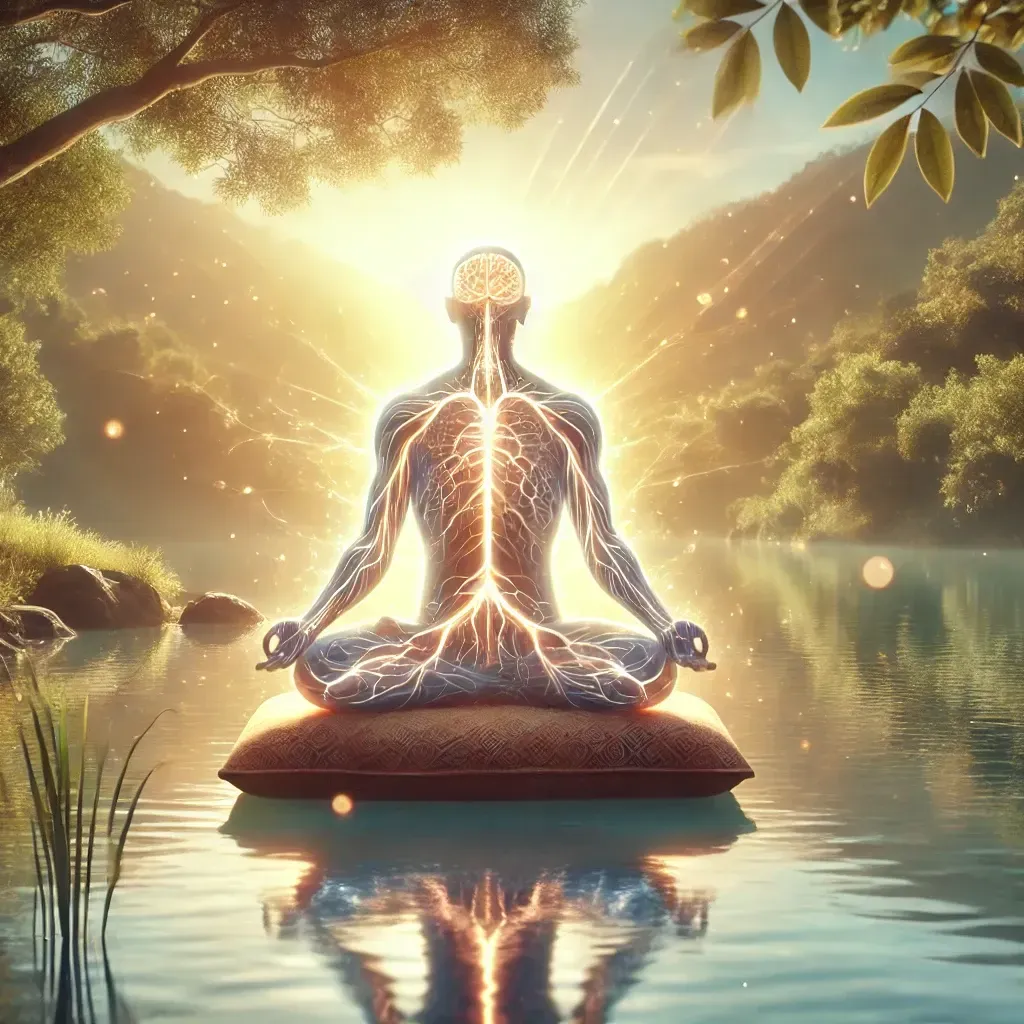
In today’s fast-paced world, the mind often races, driven by the demands of work, family, and personal ambitions. Meditation is commonly seen as a practice to calm the mind, foster inner peace, and connect with deeper aspects of existence. Yet, one crucial element often overlooked is the state of the body, particularly the nervous system. Relaxing the nervous system isn’t just a preparatory step; it is foundational for unlocking the deeper states of awareness and tranquility that meditation promises. Drawing insights from my journey and teachings, we will explore why this is so vital and how it transforms the meditative experience.



